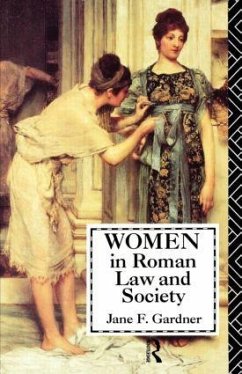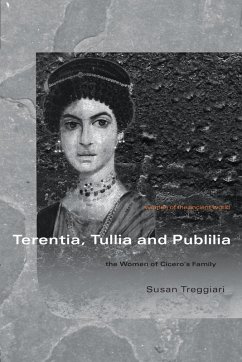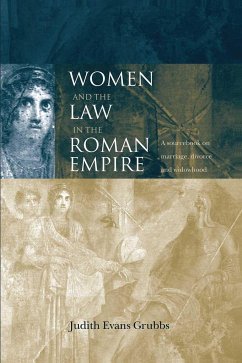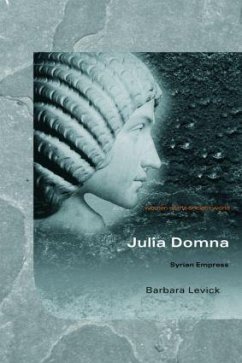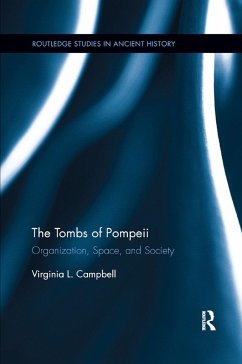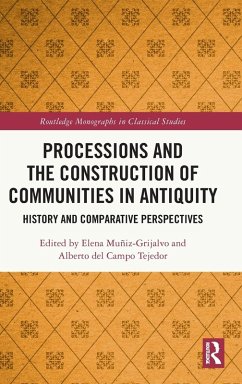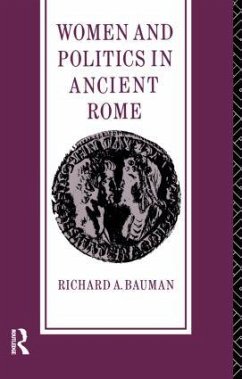
The Roman Mother (Routledge Revivals)
Versandkostenfrei!
Versandfertig in 6-10 Tagen
59,99 €
inkl. MwSt.
Weitere Ausgaben:

PAYBACK Punkte
30 °P sammeln!
The Roman Mother, first published in 1988, traces the traditional Roman attitude towards mothers to its republican origins, examining the diverse roles and the relative power and influence associated with motherhood.The importance of the paterfamilias with his wide-ranging legal rights and obligations is familiar, but much less attention has been devoted to the equally interesting position and duties of mothers and the particular limitations on their actions. The author considers the legal position of the mother, the status of the widow and her testamentary position; the official promotion of ...
The Roman Mother, first published in 1988, traces the traditional Roman attitude towards mothers to its republican origins, examining the diverse roles and the relative power and influence associated with motherhood.
The importance of the paterfamilias with his wide-ranging legal rights and obligations is familiar, but much less attention has been devoted to the equally interesting position and duties of mothers and the particular limitations on their actions. The author considers the legal position of the mother, the status of the widow and her testamentary position; the official promotion of parenthood by Augustan legislation; and the duties of mother to sons and daughters and vice versa, as they altered throughout the children's lives. Literary stereotypes of ideal senatorial mothers and of wicked step-mothers also have their part to play in interpreting the Roman view of motherhood, and the influence of such values on the course of Roman history.
The importance of the paterfamilias with his wide-ranging legal rights and obligations is familiar, but much less attention has been devoted to the equally interesting position and duties of mothers and the particular limitations on their actions. The author considers the legal position of the mother, the status of the widow and her testamentary position; the official promotion of parenthood by Augustan legislation; and the duties of mother to sons and daughters and vice versa, as they altered throughout the children's lives. Literary stereotypes of ideal senatorial mothers and of wicked step-mothers also have their part to play in interpreting the Roman view of motherhood, and the influence of such values on the course of Roman history.





